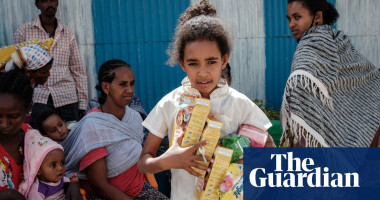‘A colonial mindset’: why global aid agencies need to get out of the way
With the world’s humanitarian system in crisis, many NGOs now recognise that local charities can deliver much more at far less cost
…
Charities such as Tsega’s, set up by individuals to help their own communities, are the oldest form of humanitarianism. Yet they are also being viewed as the future of an https://www.theguardian.com/global-development/2024/jan/04/were-playing-whac-a-mole-why-the-aid-system-is-broken that relies on international organisations and UN agencies to devise and deliver programmes.
In a recent landmark white paper on development, the UK’s Foreign Office (FCDO) said it would deliver aid in poor countries “as far as possible through local institutions and organisations”. Meanwhile, the US Agency for International Development (USAid) plans to channel at least 25% of its funding through “local partners” by 2025. By the end of the decade, USAid wants at least 50% of its programmes to be driven by local agencies.
This commitment to “localising” aid is not entirely new. In 2016, a UN conference of 9,000 delegates gathered in Istanbul to make the delivery of humanitarian aid sustainable and effective. One of its key outcomes was a pledge to allocate 25% of funds to “local and national responders” by 2020.
…
Kennedy Odede, head of Shining Hope for Communities, a grassroots organisation that works in Kenyan slums, says the humanitarian aid system is “still characterised by a colonial mindset” that largely ignores the cultural knowledge of organisations such as his.
“They believe they can just walk into a community and they’ll solve the problem if they have enough money, but that’s not how you create change,” says Odede, who grew up in Kibera, the biggest urban slum in Africa and one of the places where his NGO works.
